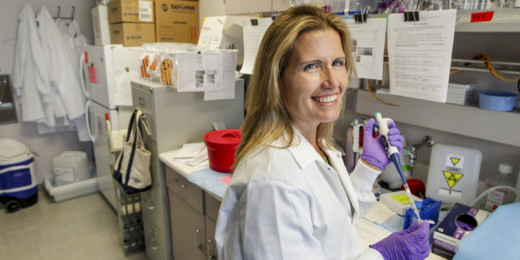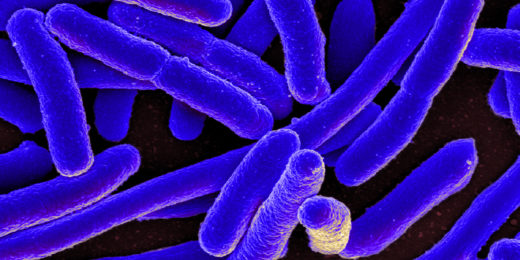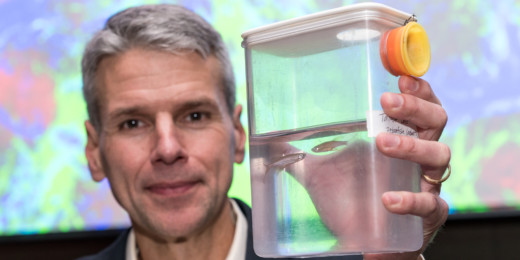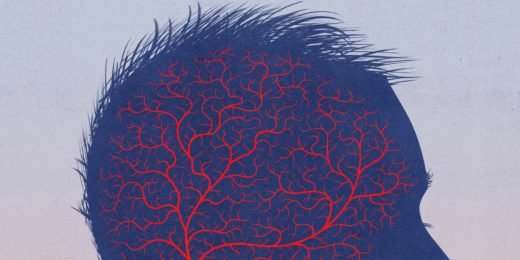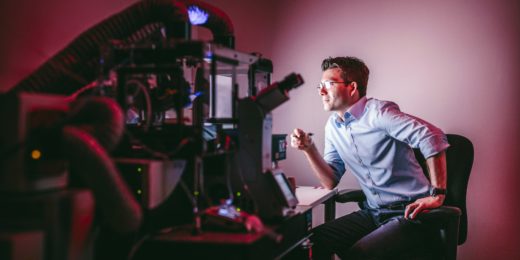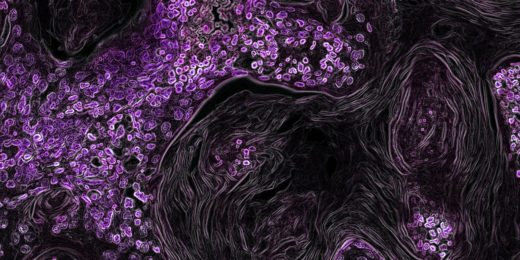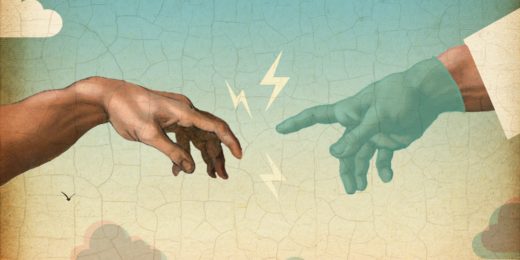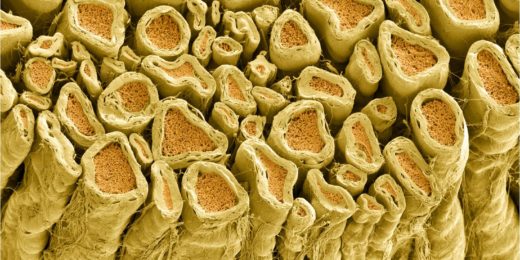Inspired by family members to pursue a science career, Stanford's Karen Parker is working to better understand the biological basis of social functioning as related to autism.
Category: Medical Research
It’s when, not if, computers come for medicine
Future physicians may one day be practicing more as overseers rather than decision makers, argues Stanford medical student Steven Zhang.
Stanford and Common Sense Media explore effects of virtual reality on kids
How are kids using virtual reality? What's the effect of VR on their brains? A new report delves into these questions and provides parents and educators with a practical guide on VR use.
Stress hormone rise at night leads to weight gain
Immature fat cells grow up if stress hormones rise at night. A new study explains the molecular underpinnings of why people gain weight due to chronic stress, disrupted circadian rhythms and treatment with glucocorticoid drugs.
Probing concussion’s complexities with football mouthguards and a whole lot of computer time
Concussion is a serious public health problem, but researchers don't fully understand how they happen or how to prevent them. Now, researchers find, concussion is more complex than previously thought.
Next up: Cough medicine from bioengineered yeast?
Stanford scientists have figured out a way to convert common brewer’s yeast into an efficient factory for making a non-narcotic cough medicine that occurs naturally only in opium poppies.
Learning from health-related social media posts: A Q&A
Stanford physician Sidhartha Sinha analyzes social media posts using machine learning to better understand patient and societal perceptions on medical interventions and illnesses.
Big bacteria may be easier to kill, new research suggests
Stanford researchers have discovered a genetic "tuning knob" that can enlarge or shrink bacteria across a wide range - and this can be used to fatten up the bacteria to increase their susceptibility to certain antibiotics.
Inventing the future: How scientific discovery can have exponential impact
The Stanford Medicine Discovery Innovation Awards provide funding to support early-stage, creative research, fueling scientific discoveries.
Advances offer new hope for stroke survivors
Seventeen million Americans live with the aftermath of stroke, including difficulty communicating, moving around, and taking care of their most basic needs. Now, Stanford researchers are working to give those survivors new hope.
“Brain balls” let scientists mimic, study neurodevelopmental disorders in a dish
The human brain, and how it works, is one of the great mysteries of science. If only you could grow a brain in a bottle, you could learn a lot about what can go wrong – or for that matter, what goes right – in early brain development. So that's why Sergiu Pasca did.
Stanford symposium illuminates how stem cell therapies interact with their surroundings
Reaping stem cells’ full therapeutic benefits requires a detailed understanding of the complex relationships between the cells and their environments -- whether in a lab dish or a patient’s body.
New imaging agent could help personalize lung cancer treatment
A new radioactive agent developed at Stanford can identify whether a widely used lung cancer drug is likely to be effective.
Why Frankenstein matters, now, to you
Stanford anesthesiologist and writer Audrey Shafer reflects on the importance of considering the scientific and ethical issues raised by Frankenstein.
Advanced cell-labeling technology identifies suspect cell type, possible new therapeutic approach to multiple sclerosis
Researchers have identified an immune cell type with an apparently critical role in multiple sclerosis, and a way to block its entry into the brain.
Social media gives early clues to adverse drug reactions in cancer, Stanford researchers find
A group of researchers identified adverse and previously unknown drug reactions by sifting through millions of social health forum posts.


